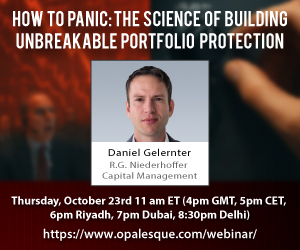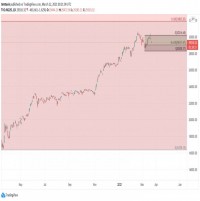|
Discussion Board:
"Recent industry discourse has delved into how Islamic Finance - and its overall framework - can help resolve some of the issues found in conventional finance. In that regard, where would the contribution of Islamic finance be more effective - at the institutional level (i.e. financial instruments, compliance procedures, etc.) or at the individual level (i.e. body of ethics, guiding principles, etc.)? Either way, how can such a framework be successfully 'exported'?" Ehsan Waquar* "Islamic finance has to instill emphasis on corporate responsibility, making the institutions and the individual responsible, educating them on particular principles and ethics and demanding ethical behavior in return. The doctrines of ethics are nothing but a bunch of set principles that the Islamic Devine law has intended for mankind to follow in order to keep the interest of the entire society intact and ultimately forming a healthy welfare community. If we analyze a social corporate society we conclude that individuals within its periphery have certain responsibilities that have been entrusted upon them by the stake holders and expecting them to behave morally. As construed earlier the fundamental reason behind the crisis was in simple words the unfettered behavior. Corporations are collectively group of individuals. Whenever we speak of corporate we collectively mean individuals. Any regulation when maltreated by any corporation is actually battered by its individuals. Fundamentally, they are the individuals who portray the picture of any organization. If individual understand their critical responsibility they will constitute a socially responsible corporation. It means that Islamic finance needs a lot of human resource development and reformation who at last are instilled with the ethical teachings in order to constitute a social responsible organization. One thing to comprehend is that social responsibility is not just limited to environment regulations and few charities, contributions and endowment made to the community but it has more to do with the interest and benefit of all stakeholders, especially the investors. Islamic finance will address and focus institution but institution without individuals has no meaning." Sh. Faizal Manjoo* "Islamic finance evolved and is still evolving within a conventional paradigm. It has been following the conventional pattern and has not been able to contribute much to the financial industry because it is quite different in products and spirit. However due to its miniscule dimension it does not have a big impact that will warrant the authorities to reconsider their position. On the other hand, with the credit crunch and the need to pull in the GCC's extra liquidity there, has been a small effort mainly from the Far East countries to accommodate Islamic finance a little further! The whole issue is to grasp the differences between Islamic finance and conventional finance, which has been elaborated by many academics. The very nature of Islamic finance demands a full reconsideration of the regulatory, legal, accounting and tax frameworks, because the existing ones do not accommodate for the expansion for Islamic finance as it ought to be; be it at the banking or takaful or Islamic capital market levels. Only Malaysia is willing to bring some reasonable changes, unfortunately! Hence the starting point is to work at the framework level if the world wants to see a proper contribution of the Islamic finance. At the institutional spheres there is a need for the authorities concerned to be more focused rather than adopting the "fair level playing attitude" . I am not arguing in favor of giving a free reign to Islamic finance, but rather to reconsider its own risks and accordingly accommodate it so that it can contribute on a grand scale. The liquidly is present, the market is growing; there is a big scope to further develop the industry such as pension, money market etc. It has been argued to be a more stable financial system, hence it needs to be given an opportunity. Once the necessary parameters are established for its evolution then only we shall be in a position to discuss its contribution at the individual level. Islamic finance is fundamentally Shari'ah based; some laws are immutable whereas others can fall within the ambit of ethics due to istihsan or maslaha. There is a lot of academic discussions on this issue in the Western world, i.e. the need for Islamic commercial ethics rather than Islamic commercial law. Once ethics is brought in, it opens a completely a new paradigm shift; but the only concern is whether Islamic Finance will remain Islamic finance without its law? Once these issues are ironed out, for Islamic finance to be accepted on a global level, then a good marketing strategy will be needed. To sell financial products to the public, confidence need to be created, not only in the products but also in its ethics, regulation, tax incentives etc. Without the appropriate multi-dimensional approach Islamic finance will be lagging behind." Prof. Mahmood Faruqui* "First, we are not talking about Beliefs and Prayers (Eiteqa-daat & Iba-daat) but about Islamic Economics (Fiqh-ul-Iqtisad) & commercial transactions (Fiqh-ul-Muamlaat). These are based, amongst others, on Equality (Musawat) Social justice & Equity (Al Adal) Trust (Amanah) and Accountability (Ehtesaab). Their ethical dynamics resonates in conventional moral and political philosophy. Adam Smith's Theory of Moral Sentiments, articulates principles similar to the theories of Ibn-e-Rushd. Many eminent Western economists, e.g. Schumpeter, have eloquently challenged the utility of interest. Second, the present continuing financial crisis in conventional and to a lesser extent in Islamic - finance is caused not because its founding principles were defective, but because they were abused in implementation. The root of this abuse is that in the last 40 years, Greed is good ruled the market with xenophobic zeal. It spawned market abuse, insider trading, opacity of procedures & SIVs, complexity of instruments and asymmetrical remuneration policies. Third, at the axiomatic level, Islamic finance can offer the prohibition of Riba, short selling, excessive speculation, excessive debt, trading in debts and derivatives, excessive leverage not for adding value to the real economy, but to inflate numbers in hot air balloon of financial capital and to enlarge toxic assets and imploding governance black holes. But how do these Islamic prohibitions differ from principles of prudent risk management and deposit protection? As I said, the shameful bubbles arose not because of defective principles, but because the tsunami of market triumphalism engulfed not only markets but ripped apart the very fabric of government and social institutions. Fourth, How can the dykes against such Tsunamis be 'exported'? Islamic and conventional Finance have to learn to co-exist and adapt acceptable strategies towards a synthesised convergence for a better tomorrow. They have to enter honest debate not so much at the micro level of nuts & bolts or innovation or replication. I am afraid, it has to be at the macro level. The leaders can no longer be deaf to the clarion call to redefine the raison d'etre of Financial Institutions, Regulators and of Government itself. Personal avarice should yield to common good. Shareholder value may be tempered with stakeholder well being. Exotic models and financial engineering have a place only if they are well & truly understood. We need not exotic, but dull and hard working common man and women who are ever conscious that they are accountable for their acts & omissions, whether to the society, the environment or indeed to the Almighty. Are these principles peculiar to Islam only? " *Note: The opinions expressed herein are the personal views of each individual, and - unless otherwise indicated - are not reflective of the views or policies of their employers/institutions.
|
Opalesque Islamic Finance Intelligence
Discussion Board: The Islamic Finance Framework |
|





 RSS
RSS










